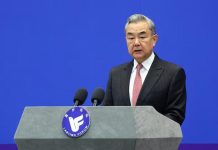Africa-Press – Mauritius. The Supreme Court (SC), in its verdict in the case STC vs Betamax, ruled that the contract for transportation of petroleum products to Betamax was illegal as it was in breach of the provisions of the Public Procurement Act (PPA) and therefore not in public interest.
The Court accordingly set aside the award of the Singapore Arbitration Tribunal in favour of Betamax. In determining that the contract to Betamax was illegal, the SC relied essentially on the provisions of Regulation 2A of the Public Procurement Regulations to counter the argument of Counsel for Betamax that the contract was exempt from the provisions of the PPA.
It is pointed out that Regulation 2A emphatically provides that: Nothing in these regulations shall be construed as excluding the application of the Act to a public body, referred to in the First Schedule to these regulations and the Schedule to the Act in respect of a procurement contract to which the public body intends to be a party and which is specified in column 2 of the Schedule to the Act.
It is also pointed out in the judgement that the Regulation 2A, in unequivocal term, ‘annihilates the application of any exemption under the Regulations’.
Accordingly, it is ruled that the STC could not claim to be an exempt organisation which would exclude the application of the Act to the contract for transportation of petroleum products awarded to Betamax. Implications of the ruling of the Supreme Court
The interpretation given to the provisions of the PPA and the Public Procurement Regulations by the Supreme Court, especially with regard to ‘exempt organisation’, goes against the advice tendered so far by the Attorney General’s Office and the Procurement Policy Office, and gives rise to some pertinent questions.
Section 3(2) of the Act specifically provides for exemption in clear and unequivocal terms: ‘This Act applies to any other procurement effected by a public body, other than an exempt organization’, and an exempt organisation is defined as ‘a public body which is excluded from the application of the Act in relation to contracts referred to in the First Schedule’.
STC, along with CEB, MBC, Agricultural Marketing Board, MBC, ICAC, etc. , forms part of public bodies specified in the First Schedule. What has precedence, section 3(2) of the Act, which provides for exemption, or Regulation 2A, which nullifies all exemptions? As per interpretation of the SC, it seems it is the Regulation has precedence. If we are to go by this interpretation, all contracts awarded so far by the ‘exempt’ organisations are illegal.
Will this be practical? For example, to buy onion or potato from the local producers, the Agricultural Marketing Board will have to invite bids; the MBC too will have to invite bids for transmission rights or for purchase of films; the STC will not be able to intervene in a timely manner, say when there is a fall of prices of commodities like petrol, rice , flour, etc.
, on the world market, as it will have to initiate tender procedures to buy these items!!
It should be noted, en passant, that amendment was brought to section 3(2) of the PPA (Finance Act 2009) with the very aim of exempting certain public bodies from the application of the Act taking into account the nature of the activities they are engaged in.
Thus, the STC, SIL, Agricultural Marketing Board etc. , which are engaged in commercial activities, were exempted from the application of the Act in relation to contracts for purchase of ‘goods for resale including services incidental to the purchase or distribution of such goods’.
(The logic is that an organisation engaged in commercial activities should have the flexibility to take advantage of opportunities that present on the market, where time is of essence and the application of the act may constitute a serious handicap).
The intention of the legislators was clear in bringing the said amendment: some public bodies need to be provided with a certain amount of flexibility in the application of the Act so as to enable them to discharge their duties efficiently.
Conclusion Necessary amendment will have to be brought to the Public Procurement Act and the accompanying Regulations to clarify matters. All those concerned with procurement undertaken under the exemption clause so far (STC, CEB, MBC, Agricultural Marketing Board, ICAC, etc.) must be considered to have acted in good faith, unless the contrary is proved.
For More News And Analysis About Mauritius Follow Africa-Press







